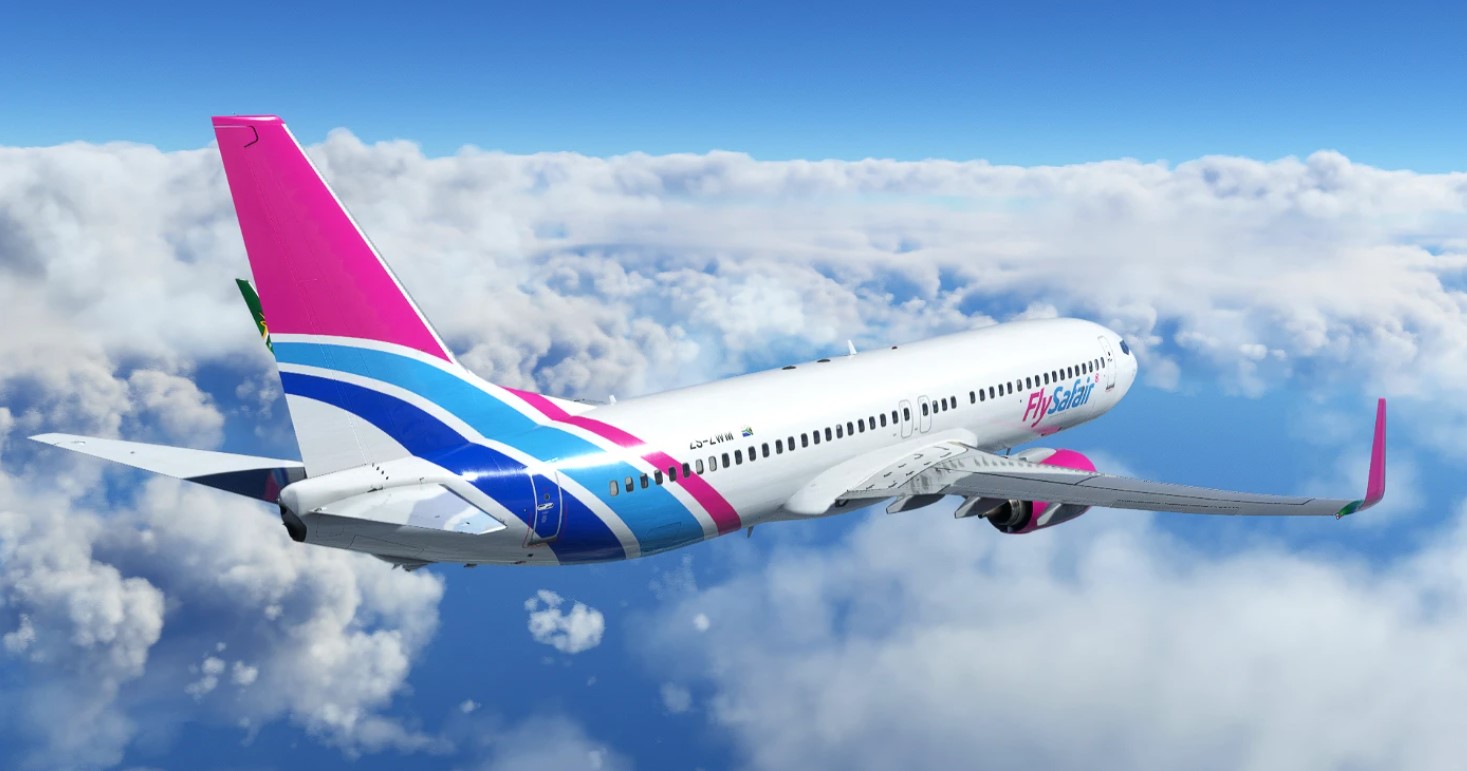South Africa’s International Air Services Council (IASC) has ruled that FlySafair does not comply with local regulations regarding foreign ownership. This could potentially jeopardise its operating licence.
The enquiry by the IASC into FlySafair’s shareholding structure dates from October 2022 and emanates from formal complaints by Airlink and Global Aviation (which operates LIFT) received by the IASC in February of that year, Business Day reports.
The IASC has now determined that FlySafair’s shareholding structure contravenes South African law, which caps foreign ownership of domestic airlines at 25%.
According to the IASC, FlySafair is primarily controlled by Ireland-based ASL Aviation Holdings, which directly holds a 25% stake and indirectly owns 49,86% (via the Safair Investment Trust). This arrangement effectively brings ASL’s total ownership to 74,86%, significantly exceeding the legal foreign ownership limit.
FlySafair has allegedly been accused of failing to amend its air service licence to reflect changes in its ownership structure since March 2019.
The IASC plans to announce sanctions against the airline soon, which could range from licence suspension or revocation to financial penalties if the airline does not bring its shareholding into compliance within a time limit.
FlySafair contends that it has acted within legal bounds, citing senior legal advice and transparency in its dealings with regulatory authorities.
FlySafair CEO, Elmar Conradie, in an internal communication sent to FlySafair staff, expressed disappointment with the ruling but appreciated the progress in resolving the long-standing matter.
“This is obviously not the outcome we had hoped for, but it is relieving to have some forward traction on this matter after a long wait. We obviously believe that we are, and have always been, compliant with the limitations of foreign involvement, and have taken senior legal advice on the topic at every turn.
“The company and our shareholders are genuinely committed to remaining compliant and we will ensure that this issue is resolved with the minimum possible impact to our business,” Conradie said in his letter.
FlySafair has also sought clarification from the Pretoria High Court, arguing that inconsistent interpretations of foreign ownership laws could harm the aviation industry and disrupt air travel.
Disruption of air travel is a very real threat, given South Africa’s current shortage of seats on both domestic and international routes. The timing of the finding, just prior to South Africa’s summer school holidays, adds urgency for a fast resolution.
FlySafair is currently the dominant carrier on domestic routes.

